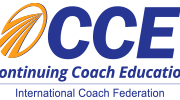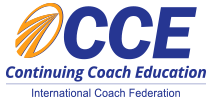Here you can find some information in English, please contact me by email for more !
Trying to explain what is coaching to my Mum
The always present question of explaining what is your job when you are a professional coach, what it is and what it is not. After over 13 years of being a coach, my mum still says about me “my daughter? What she does exactly, I wouldn’t be able to explain, I know she supports people in their job, their business. She gives them advice…”
Haaa the worst thing to say Mum, coaching is not about giving advice
As a client or a future client you might wonder what is coaching and what it twill bring you. Of course, very safe thing to reflect on…
Recently I participated in a coach training that was very interesting. International participation, experienced and friendly people really willing to learn about coaching. They were a group of experienced people, executives, from the private and public sector, corporate sector, really interesting bunch of people who had knowledge and experience of managing, HR, sales department. We covered it all almost! Trainers were experienced and holding an ICF credential.
At a point, when the trainer was clarifying what is coaching, the conversation went into a debate about the coachee: who he/she is, what she does, what he/she needs etc…
And the debate went on an on of course. I say of course because I believe that anyone could do with a little bit of coaching. When we generalize, we usually speak for ourselves. So what I heard was probably telling a lot about people themselves !
Back to the point.
Trying to clarify what coaching is and what it is not by looking at the coachee might be a wrong path. Yes the coachee will be at the center of the process once the agreement is about to be settled. Yes ! coaching all about the coachee.
But right now, it is the coach’s job to speak out and be clear about coaching and his/her own way of coaching.
I believe coaching can be clarified by a combination of several different things put together: a process, its purpose, the philosophy behind it and the ethics, what happens during the process.
To address a situation or solve a problem, as a professional and human being, you might have several ways to get help, and coaching is only one of them. Training, therapy or counseling could also be a choice.
As a coach, I trust that you are the one in charge of your life and that you will be able to choose by yourself. As a coachee, what you need is a mirror to reflect yourself in, get insights about your own mindsed, your own vision, values, bias…
It’s you, the coachee who will decide what to do with the insight, we have plenty of time during our coaching sessions to check your own action plan.
Gaining awareness and having insights is one of the main purposes of being coached.
Without that, you might end up agitating yourself in meaningless actions.
Mentoring program starts in 2017 – ICF CCE units approved
Supervision and Mentoring for coaches : what, who, how, what for ?
As coaches or managers, during our initial or continuous training in coaching, we hear a lot about supervision and mentoring. Besides, it is requested by most professional bodies for credentialing.
What is it exactly, what are the differences between supervision and mentoring ?
Who is it for? What do you do in a mentoring group ? What does it bring ?
Let’s start by attempting a definition of each:
Both mentoring and supervision define a time and space for my professional development and growth if I work in a helping profession.
That means: a regular meeting with someone who is more experienced than I am, whatever my job: coach, therapist, manager, social worker, trainer, during which I will be able to share the situations I encounter in my practice, my clients/patients cases.
Mentoring is focused on professional competencies,
whereas supervision is wider. When you go to a supervision group, it more likely includes working on specific competencies as well as other areas of professional growth.
When you go to a mentoring session, you will probably focus on specific competencies aligned with your job and responsabilities.
In this article, although all professions mentioned above are concerned, we will focus on supervision and mentoring for coaches, and more specifically with a focus on the ICF approach (International Coach Federation)
ICF is the first and biggest professional association for coaches. With over 30 000 ICF members all over the world, credentialing is one of our fights and strengths ever since the creation of the Federation in 1995.
Let’s pause and take a look at ICF credentialing system: it is the widest world spread credentialing system, internationally recognized.
Created by the body of professional coaches, and continuously improved, it answers the need to recognize coaching as a profession.
As coaching is a non-regulated profession -not yet!-, it aims at self-regulation and professionals who belong and contribute to ICF support that.
There are 3 levels of credentialing:
1st step: ACC (Associated Certified Coach), means you are on your way, you have received a minimum of 60 hours or specific coach training and you have started to work as a coach. 100 hours of practice are necessary, as well as 10 hours of mentoring
2d step: PCC (Professional Certified Coach) means you have shown enough experience and professional development to be recognized as a professional coach by your clients, your peers, and the body of coaching. 500 hours of practice of coaching are necessary as well as 10 hours of mentoring by a PCC or MCC mentor
3d step: MCC (Master Certified Coach) means you have shown your expertise and wisdom in the practice of coaching, you master the art and science of professional coaching, and you can attest of at least 2500 hours of coaching, and 250 hours of coach training over the years.
Each level of credentialing requires a number of hours of coach specific training, hours of practice of coaching, and hours of mentoring.
For each level, you are requested to have been working with a mentor coach for 10 hours minimum, and you need to pass the CKA (Common Knowledge Assessment, an online multiple choice test of approximately 150 questions)
So how does mentoring contribute to help professional coaches grow?
Mentoring is dedicating regular time with a more experienced coach on the specific competencies that you need to be able to apply and demonstrate as a coach.
Each professional association has it core competencies list.
ICF core competencies include 11 competencies, grouped in 4 categories:
- A Setting the foundations
- B Co-creating the relationship
- C Communicating effectively
- D Learning how to learn and keeping the client accountable
For a complete list of the 11 core competencies please click here
Practically, what happens during a mentoring session?
During a mentoring session, you show your coaching competencies and you get feedback and feedforward, from your mentor and from your peers if it is a collective session of mentoring.
This can be done either by live coaching if your mentoring is collective mentoring: during 15 or 20 minutes, one of the participants is a client and another one is a coach.
The coaching takes place while other participants are carefully listening and observing the coaching session.
When the coaching is over, first the coach evaluates his own work during the coaching session. Then, he/she receives feedbacks and feedforwards from other participants and from the mentor(s).
Competencies are then discussed in order to allow each participant to improve their coaching competencies.
The group meets regularly, online, by Skype or any other Internet platform. I use Zoom platform. It is free for clients, no profile to download, just a quick link to clic.
Another way of being mentored is by recording a real coaching session -with your client’s agreement-, and listening to the recording during the mentoring sessions.
Recordings are often shared a few days in advance to allow participants to better prepare the mentoring session.
Individual mentoring sessions usually last between one and two hours, while collective mentoring can last much longer.
I run a 3 hours session, split in two 1 and ½ hours with a short break in between. It depends if the listening is done live, or if the listening is done prior to the mentoring.
ICF requests 10 hours of mentoring, among which 3 of them must be received individually.
And what about Supervision then ?
Supervision enables you to work and improve wider aspects of your profession:
Competencies of course, and also personnel development such as your own believes, your own mindset. You will grow awareness on your own way of handling things, projects, clients, business…
Everything you experience or fear or postpone is good material for supervision. But that’s another story as professional supervision is not yet compulsory for credentialing.
So one could say mentoring is more specific and focused on the coach competencies, supervision is wider and includes working on your being as a whole, as well as your doing as a coach.
Most of the time, supervision offers a wider angle and includes mentoring.
Check here for our coach mentoring programs, in French and in English.
Our program grants you CCE units if you need to renew your PCC credentialing.
Professional coaches engage in continuing development
When it comes to chose the means of your own continuing professional and personal development, it is sometimes difficult to know exactly what means brings what results.
In this short 3′ video, discover how Supervision and Mentor coaching are very close, but not quite the same



